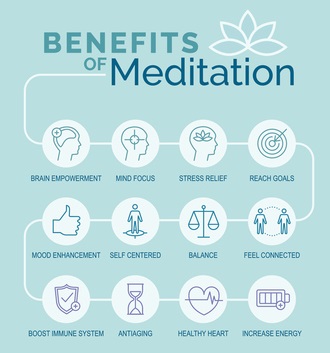Fifteen new tax returns just came in. One of the returns has oil partnerships in 40 states. A review for the client from hell is on your desk. You know the one: where they don’t understand why inventories shouldn’t be adjusted against cost of goods sold just so they can get their bank loan. Your significant other wants to go out for dinner, and you already know if you make it home by midnight it will be a glorious four hours of sleep. You just want to run around and get it all done but have no idea what you should grab next.
What if there was a potential solution, a way to slow down your thoughts, so your reactions could be well thought out? Most people would jump at the chance of obtaining this skill right about now. Not only would it solve the problem of what to grab next, but it would improve client relations, interactions with staff and peers, as well as work and life. If the ability also included greater peace of mind, more joy and greater understanding of one’s own emotions, then so much the better!
A meditation practice is said to accomplish all of this. Learning it sounds simple enough: read a few books, download an app or two, and you should reap the benefits in no time.

It all sounds easy until you actually try to meditate.
If you are like most people, you sit down in your “comfortable” meditation position and try to concentrate to figure out the following: you have an itch, your “comfortable” meditation position is not comfortable after all, your back hurts and the sounds in the room are annoying. Your mind then wanders to what’s for dinner, and why did I eat and drink so much last Saturday? Am I getting completely out of shape due to tax season? Did I remember to call that client back?
After attempting this again and again, you simply give up. After time passes, you buy another book, try another app and get the exact same results. Perhaps you try a third time, and then finally decide that unless you go to India and live in an ashram, or study in a Buddhist monastery with the monks, it will never work.
I have tried all of the above.
The change for me came when I picked up a book on tape called “Meditation for Fidgety Skeptics” by Dan Harris, which I listened to on my way to work. The format is a conversation between Dan Harris (co-anchor for ABC Nightline and host of Good Morning America weekend edition) and his meditation guru.
The book is a quick read or listen on tape, and it was the trigger for me. The author addresses the fact that most people’s attempts at meditation end in failure, due to all the reasons already described. The trick is to attempt to do it in short 1-5 minutes intervals, and no more.
Every time your mind wanders from your breath or whatever point of concentration you pick (a word, a saying, a mantra), breathing in and out you bring back your mind back to your point of concentration and begin again.
Meditation is about going back to your point of concentration again and again. The book, as well as many guided meditation apps, discusses how to watch your thoughts when you have wandered off. There are many different points of concentration and meditation topics, most of which are humorous, and make meditation fun.
After listening to Dan Harris’s book on tape, I went back to download new apps and only picked ones with meditations under 5-10 minutes. I am beginning to have some progress. I even had one amazing meditation, where I think I actually meditated for about two minutes. I spoke with other people who had the same experience, and one told me that after 10 years they finally meditate 3-5 minutes a day. Clearly the process can take a long time.
In summary, at some point after enough practice, you will be disciplined to actually meditate for a few minutes. It is at this point you can begin to develop the abilities to slow down your mind and control it instead of it always controlling you. The solution exists as long as you have enough patience knowing that the practice will bring rewarding meditations.